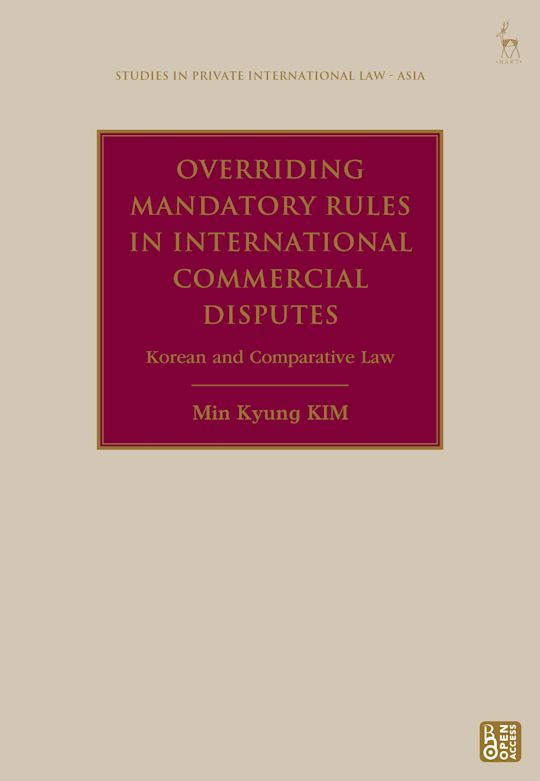Views
The Jurisdiction Puzzle: Dyson, Supply Chain Liability and Forum Non Conveniens
Written by Dr Ekaterina Aristova, Leverhulme Early Career Fellow, Bonavero Institute of Human Rights, University of Oxford
On 19 October 2023, the English High Court declined to exercise jurisdiction in Limbu v Dyson Technology Ltd, a case concerning allegations of forced labour and dangerous conditions at Malaysian factories which manufactured Dyson-branded products. The lawsuit commenced by the migrant workers from Nepal and Bangladesh is an example of business and human rights litigation against British multinationals for the damage caused in their overseas operations. Individuals and local communities from foreign jurisdictions secured favourable outcomes and won jurisdictional battles in the English courts over the last years in several notable cases, including Lungowe v Vedanta, Okpabi v Shell and Begum v Maran.
Navigating Global Jurisdiction: The Indian Courts’ Approach to Online IP Infringement
Written by Akanksha Oak, Jindal Global Law School, India
Introduction
The modern commerce landscape faces a significant challenge: the widespread infringement of intellectual property (“IP”) rights due to online interactions that enable instant global access. This issue is exacerbated by cross-border activities, necessitating the application of private international law (“PIL”). However, IP protection remains territorial, guided by the principle of “lex loci protectionis.” This results in complexities when it intersects with PIL. Online IP infringement further convolutes matters due to the internet’s omnipresence and accessibility, making the establishment of jurisdiction a complicated process for legal professionals. A pivotal development in this arena occurred in 2021 when the Delhi High Court rendered a judgement in the case of HK Media Limited and Anr v. Brainlink International Inc.,[1] illuminating India’s legal framework for determining jurisdiction in cases of online IP infringement within the context of cross-border disputes.
The 2019 Hague Judgments Convention Applied by Analogy in the Dutch Supreme Court
Written by Birgit van Houtert, Assistant Professor of Private International Law at Maastricht University
On 1 September 2023, the 2019 Hague Judgments Convention (HJC) entered into force. Currently, this Convention only applies in the relationship between EU-Member States and Ukraine. Uruguay has also ratified the HJC on 1 September 2023 (see status table). The value of the HJC has been criticised by Haimo Schack inter alia, for its limited scope of application. However, the HJC can be valuable even beyond its scope as this blog will illustrate by the ruling of the Dutch Supreme Court on 29 September 2023, ECLI:NL:HR:2023:1265.
News
Chinese International Lawyers Bulletin: Call for Submissions
With the trend of globalization, legal exchange and cooperation, even competition and conflict between nations have become the norm. The demand for legal services in cross-border investment, international trade, and transnational dispute resolution is also sharply on the rise. As the world’s second-largest economy, China’s legal system is playing an increasingly significant role in cross-border legal services. However, the international legal community generally does not have much understanding of China’s foreign-related legal system and practice. There is a need for a platform that can, systematically and timely, provide information for the Chinese foreign-related legal development including updating China’s foreign-related legal policy, explaining the making and amending of relevant Chinese laws and reporting Chinese foreign-related cases etc. Read more
ILA Committee on Conflict-of-Laws Issues in International Arbitration: First Webinar on 18 February 2025
This post was written by Lukas Petschning, University of Vienna.
Conflict of laws is one of the most complex and disputed subject areas in international arbitration. An abundance of academic works has examined the issue and proposed widely diverging solutions. Yet, these studies frequently focus on isolated issues and lack overall consistency. Equally, they are often overly theoretical, lacking practical guidance useful to the average arbitrator or judge.
Forging a path toward more legal certainty, the International Law Association has established a new Committee on Conflict-of-Laws Issues in International Arbitration. It is chaired by Dr Nikolaus Pitkowitz and Ms Wendy Lin, with Professor Matthias Lehmann and Dr Mariel Dimsey acting as co-rapporteurs.
Out Now: Kim, Overriding Mandatory Rules in International Commercial Disputes [Open Access]
As part of Hart’s Studies in Private International Law – Asia, Min Kyung Kim, Judge at the Incheon District Court in Korea, just published her new book on Overriding Mandatory Rules in International Commercial Disputes: Korean and Comparative Law.
The impressive monograph, just shy of 200 pages, takes a comprehensive look at the role of overriding mandatory rules in international commercial litigation and arbitration, using Korea as a vantage point. It takes a close look at a large variety of (mainly European) sources in order to interpret and critically discuss the Korean Act on Private International Law, with a particular focus on the treatment of third-country mandatory rules. The book also identifies a range of potentially overriding mandatory provisions in Korean law.
The book is available open access at the publisher’s website.



